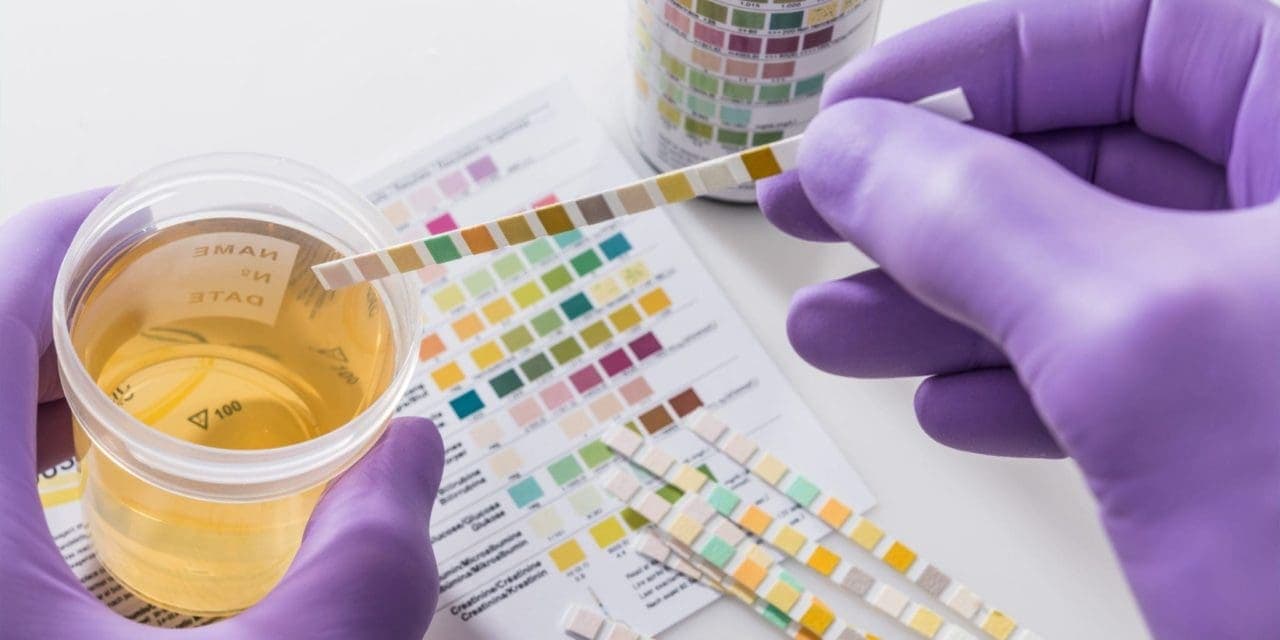Does Delta-8 Make You Fail a Drug Test?

Article written by

Shanti RyleContent Writer
Content reviewed by

Dr. Gavin MorelandMedical Director
Delta-8 is a popular form of THC that’s not federally regulated and produces similar effects to the more well-known delta-9 THC. And, like delta-9 THC, using delta-8 can make you fail a drug test.
Even if delta-8 is legal in your state, current drug tests cannot differentiate between these two forms of THC. So, if you have an upcoming drug test, read on to learn more about delta-8, the drug screening process, and how to lessen your chances of getting a positive result.
Get your medical marijuana card
What Is Delta-8?
Delta-8 THC is a cannabinoid found in cannabis that shares similar chemical structures to regular THC (delta-9-tetrahydrocannabinol) but is considered less potent.
Those who use delta-8 THC generally report that the cannabinoid produces a feeling of weightlessness and intoxication similar to other cannabis products, with slightly less brain fog and anxiety. While several products high in delta-8 exist on the market, they’re generally made from hemp-derived CBD plants using unregulated chemical processes and could be dangerous.
Delta-8 vs. Delta-9
The differences between delta-8 THC and delta-9 lie in a single molecular bond on one ring within the THC molecule. The two compounds are nearly identical in structure and produce similar intoxicating effects, though delta-8 is anecdotally less potent than the more well-known delta-9 THC. They also bind to the same cannabinoid receptors (CB1 receptors) in the brain and peripheral nervous system and produce many of the same health benefits.
Aside from the slight difference in their chemical makeup, delta-9 THC is also far more abundant in the cannabis plant than delta-8, which is relatively sparse. Despite this, it is gaining popularity among consumers due to a loophole in the 2018 Farm Bill, making it federally legal (as opposed to marijuana, which is considered illegal at the federal level).
Can Delta-8 Show Up on a Drug Test?
Delta-8 THC does show up on a drug test.
The structural similarity between the two carries over to their metabolites delta-8 THCA and delta-9 THCA. The two metabolites share molecular weight and chemical properties, which is why delta-8 can cause an individual to fail a drug test for THC.
Drug tests look for THC metabolites in a person’s urine, blood, hair, sweat, or spit. A test for a person who’s used a delta-8 product, which may be legal in their state of residence, may produce a false positive for the more abundant delta-9 THC.
How Long Does Delta-8 Stay in Your System?
While studies are scarce on the longevity of delta-8’s effects, anecdotal reports show that delta-8 THC’s effects can last up to five hours in the body. And, like delta-9, its metabolites can stick around in the human body for as long as 90 days. Most drug tests can only detect metabolites for a few days after drug use, but chronic users of delta-8 can produce positive test results even up to 30 days.
The longevity of delta-8 metabolites in the body depends on several factors, including:
- How much you’ve consumed
- How long and often you’ve been consuming delta-8
- How fast your metabolism works
- Your endocannabinoid system (ECS)
Those who are delta-8 naive with fast metabolisms may be able to clear out its metabolites in a few days, whereas chronic users with a slower metabolism may take a few weeks for traces of the cannabinoid to disappear.
How to Pass a Drug Test
While the effects of delta-8 disappear after a few hours, there are times when you may need to eradicate its metabolites from your system quickly. Here are a few steps to pass a drug test when necessary, depending on a few factors.
First, the type of drug test plays a role in how sensitive the test is and whether it’ll detect delta-8 in a sample. Urine, blood, or saliva tests are easier to pass as these fluids quickly move through your system:
- Urine drug testscan detect THC for up to three days for cannabis naive users or five to 10 days for more experienced consumers. Therefore, it’s wise to avoid using THC products at least 10 days before a scheduled drug test.
- Blood tests can detect delta-8 anywhere from three to 25 days after use for more chronic consumers of cannabis. When vaporized, delta-8 stays in your bloodstream for a few days when vaporized, so blood tests are often used to check for recent cannabis use.
- Saliva drug tests may detect the presence of delta-8 for up to 72 hours after use. These are mostly useful in roadside checks when you’re suspected of driving under the influence.
- Hair follicle tests are a different story, as hair takes much longer to grow, and THC can remain in hair follicles for up to three months. Fortunately, while hair tests are at least five times more sensitive than urine tests, they are far less common.
Dose, frequency, total body fat, and genetics affect how long delta-8 THC remains in your system. A healthy diet and exercise can help speed up your metabolism, but these are long-term remedies that won’t work in a pinch.
If you need to pass a drug test, it may be best to abstain from using in the days before; ideally, one month before.
The Bottom Line
Regardless of the drug testing method, cannabinoids can be incredibly difficult to flush out your system. Time and patience are the best tools in your arsenal for avoiding a positive test result, so if you need to pass a drug test, cease use of all THC products at least a month beforehand.


